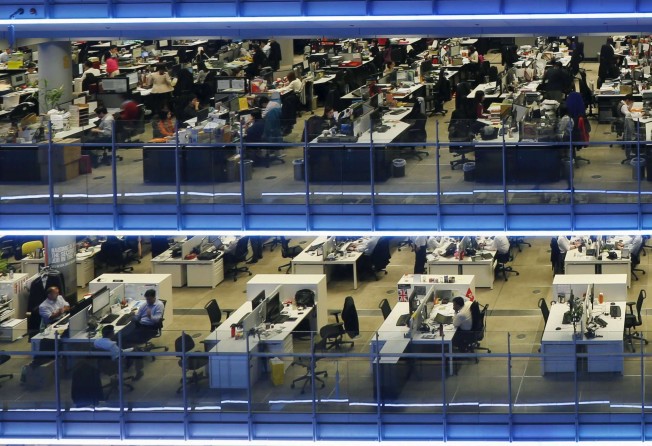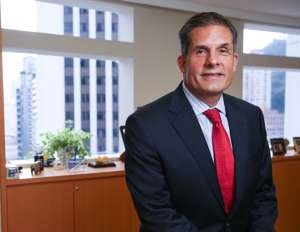Hong Kong investors shift from equity to bond funds to escape rising market uncertainties
City’s investment fund industry chief says mainland economic slowdown, Brexit and fear over a rise in US interest rates have left investors worried

Fixed income funds have become the biggest winners this year, as investors shift their investments from equity funds to bond funds to escape rising market uncertainties, according to the latest figures from the Hong Kong investment fund industry’s representative body.
Gross bond fund sales in the first eight months of this year stood at US$23.37 billion, more than double the income of equity funds (US$11.72 billion) during the period.
Balanced fund sales, which invest in both equity and bonds funds, totalled US$66.96 billion.
Arthur Bacci, the newly appointed chairman of the Hong Kong Investment Funds Association, which compiles the figures, said three economic uncertainties – China’s economic slowdown, Britain’s vote to leave the EU, and fear over a rise in US interest rates – have left Hong Kong investors worried.
“We have seen many investors shift from equity funds to fixed income funds this year due to those and other uncertainties hanging over the investment market,” Bacci said in an interview with the South China Morning Post.
“They are opting for lower risk investment options, and do not want to put too much money into equities.
“High-yield bond funds and mixed assets funds with bond exposure are proving popular,” he said, adding he expects the trend to continue for some months yet.
“There are still a lot of uncertainties ahead, as interest rates may rise in the fourth quarter. In addition, we do not know who will become the next US presidential in the coming election in November.”
He said the muddy economic waters have also led many to avoid making investments altogether, and so he expected overall fund sales to decline from last year.
“Sales will be lower this year, however we firmly believe fund sales will return to growth, longer term.,” Bacci said.
Bacci said the most positive aspect was the figures show investors are tending to shift their equity funds to bond funds, instead of simply redeeming them for cash.
Net capital inflow of funds – the deduction of redemptions from gross sales - however, still hit a record US$2.6 billion in the first eight months.
During the financial crisis of 2008, net outflow of funds was US$4.6 billion with redemptions bigger than total gross sales.

British investment house Schroders’ best-sellers this year are also bond funds: The Schroder International Selection Fund, Global Corporate Bond and Schrorder Asian Asset Income Fund.
Its Hong Kong chief executive Chris Durack told the Post that if investors can afford to take higher risks, they should consider shifting into some equity or mixed asset funds to achieve higher long-term returns, as stock investment tends to win over bonds.
“Investors should pay attention to valuations of the stock markets when they decide to shift their investment from bonds to equities, as that could make a huge difference to their returns,” Durack said.
“We have been looking at global equity market returns over the last 40 years. Average annualised three-year returns over 40 years have been 17 per cent, when entry is made at 14 times price-to-earnings, compared with 3.7 per cent when investing at price-to-earnings of 24 times or above.”
He warns, however, against investors switching funds too frequently.
“The performance of the best-performing asset class over the last 20 years produced a return of 19.3 per cent per annum,” Durack said.
“However, if investors were to chase this performance by investing in the same assets with a one-year lag, average returns fall to 2.3 per cent per annum.”
